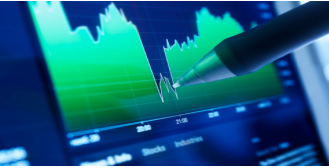De tyske industriordrer steg pænt i mars, og nu ligger de 9 pct. over niveauet fra før pandemien, skriver ABN Amro. Der er ligeledes gang i den amerikanske servicebranche. Restauranternes aktivitet er ganske vist 20 pct. under niveauet fra før krisen, men nu begynder der at blive åbnet fuldt op for sektoren.
German goods orders soar + US services continues strong recovery
Euro Macro: Orders for German intermediate goods soar –
The volume of new orders for Germany’s manufacturing industry rose by 3.0% mom in March. The outcome was higher than the consensus (1.5%) and our own (2.0%) estimates. The sharpest rise in orders was in consumer goods (8.5% mom), followed by intermediate goods (2.8%) and capital goods (2.5%).
The monthly data tends to be very volatile and often reflect payback for changes during earlier months. For instance, the jump in consumer goods orders in March followed two monthly declines of 7% in total in January-February. To get more insight in the underlying trends in orders we have compared the level of orders to the pre-pandemic levels (average of December 2019-February 2020).
In March, total orders were 9% higher than before the start of the pandemic. The detailed data shows that orders for consumer goods had risen by 7.6%, orders for capital goods by 6.8% and orders for intermediate goods by a spectacular 13%. The main jump in intermediate goods orders came from German manufacturers themselves (+15.8% versus pre-pandemic levels), followed by non-eurozone foreign manufacturers (+13.6%). Finally, orders for German intermediate goods placed by manufacturers from other eurozone countries were up by 6.8% in March compared to pre-pandemic.
The jump in orders for intermediate goods is also reflected in the component of the manufacturing PMI that is measuring suppliers’ delivery times. Supplier delivery times in Germany’s manufacturing sector have been rising non-stop during every month since August 2020 and the index (diffusion index of percentage ‘shorter’ minus ‘longer’) had fallen to record-lows in April.
This is similar to the trends in suppliers’ delivery times in the global manufacturing PMI. All in all, Germany’s factory orders data indicate that industrial production will grow robustly in the coming quarters, particularly in the intermediate goods sector, but also in capital and consumer goods. (Aline Schuiling)
US Macro: Services sector continues strong recovery –
The ISM Services Index moderated slightly in April, although it remained at a high level – the index fell to 62.7 from 63.7 in March. Both current activity and new orders remain exceptionally strong, while commentary from survey respondents pointed to a broadbased recovery in the services sector.
The strength is not only in the obvious reopening-dependent segments, such as restaurant dining, but also in healthcare, where the sharp decline in Covid-19 hospitalisations is enabling and encouraging elective surgery procedures that had been delayed by the pandemic to restart.
Indeed, in our recent Global Monthly, we identified healthcare as likely being one of the primary drivers of the services sector recovery over the coming months, with a large backlog of procedures and overall activity still well below pre-pandemic levels. The strength in survey-based indicators for the services sector is meanwhile corroborated by high frequency data, for instance on restaurant dining and air travel.
Restaurant dining is now only around 20% below pre-pandemic levels (March: 30% below), while air travel is around 40% below pre-pandemic levels (March: 47% below). At the same time, the rapid vaccine rollouts are enabling reopening steps across the US to continue.
A number of states – for instance New York and New Jersey – will fully end restrictions on activity by 19 May, enabling entertainment venues to reopen. All of this suggests strong growth momentum in the services sector will persist well into Q2, and we expect growth to remain above trend in the second half of 2021, albeit moderating from the sharp rebound of the first half.













